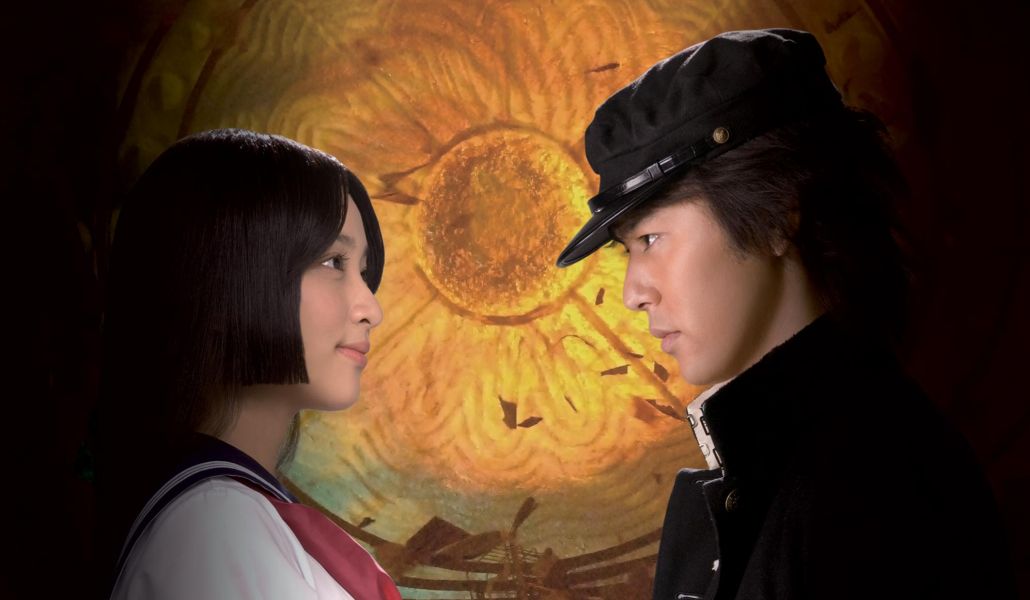Takashi Miike gives West Side Story a Japanese spin, and the results are one of his most flat-out entertaining films of the last decade.
Director: Takashi Miike
Writer(s): Takayuki Takuma
Runtime: 134 minutes
Starring: Satoshi Tsumabuki, Emi Takei, Sakura Ando, Takumi Saito, Ito Ono
Festival: Melbourne International Film Festival 2012
Country: Japan
Rating (?): Highly Recommended (★★★★)
Prolific Japanese filmmaker has navigated countless genres over his career of almost 90 film and television credits, although few would have picked a West Side Story inspired musical as his next outing. Continuing his journey into the past, following period pieces 13 Assassins and Hara-Kiri: Death of a Samurai, his latest film is based on Ikki Kajiwara’s popular 1970s manga Ai To Makoto. Previously adapted as three live action films and a TV series, it is one of his most energetic films of the last few years, fusing music, unrequited love and the occasional ultra-violence for a curious hybrid that is never anything less than entertaining.
In an anime opening sequence, a familiar motif but one that sets the tone for the film, we are introduced to Ai and Matoko during their collision of a first encounter. Eleven years later in 1972, Matoko (Satoshi Tsumabuki) quite literally still bears the scars of that meeting, and once again encounters Ai (Emi Takei) in the notoriously troubled streets of Tokyo’s Kabukicho district. Matoko is the consummate bad-boy, but nevertheless helps Ai with a gang of thugs troubling her. As a reward, he is sent off to remand school for beating them all half to death. Rich girl Ai, who has built up Matoko as her knight in shining armour over the years, puts in a good word with her parents, and instead gets her dream lover enrolled in her prestigious school. This doesn’t sit well with the school authorities, and it certainly doesn’t gel with bespectacled nerd Iwashimizu (Takumi Saito), who adores Ai. When Matoko is kicked out of the academy and winds up in a graffiti covered school controlled by youth gangs, Ai blindly follows him, and is in turn followed by Iwashimizu. There Makoto attracts the attention of both Gumko (Sakura Ando), the gum-chewing leader of a gang of female delinquents, and the quiet Yuki (Ito Ono). This love story just got very complicated indeed.
Miike has certainly delved into the musical form before, and after so many films it would be difficult to imagine a genre he has yet to touch on. For Love’s Sake sits somewhere between the campy musical The Happiness of the Katakuris and the street violence of Crows Zero, yet that description barely does it justice. The songs appear out of nowhere at first, as a street brawl descends into a sparkling song and dance number that would have made both the Sharks and the Jets put aside their aggression and grooved to the 1970s beats. Miike’s vision of the period is wholly one gathered from memory, his own back-catalogued as a mish-mash of cultural references. Stylistically, Tsumabuki’s rumble in the urban jungle number is a world away from the very retro-parody love song that Takei dances merrily to, but Miike somehow manages to make them part of a cohesive whole.
Miike has a triumph on his hands with For Love’s Sake. Coupled with the spectacular design of the film, with production designer Yuji Hayashida and cinematographer Nobuyasu Kita working in perfect harmony, For Love’s Sake is certainly the most visually engaging Miike film in years. When the film briefly loses momentum in the second half, it is due to a noticeable absence of musical material. Yet the frenetic pacing of the film, coupled with a wonderful cast of characters, manages to make this one of Miike’s most universally appealing films in years, an impressive feat for a musical that contains random acts of violence. Or is it a violent film that contains random acts of music? Therein lies the beauty of Miike, and if nothing else, you won’t be able to get the tunes out of your head for weeks.
For Love’s Sake played at the Melbourne International Film Festival in August 2012.






